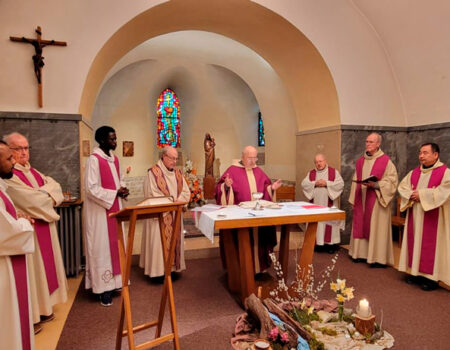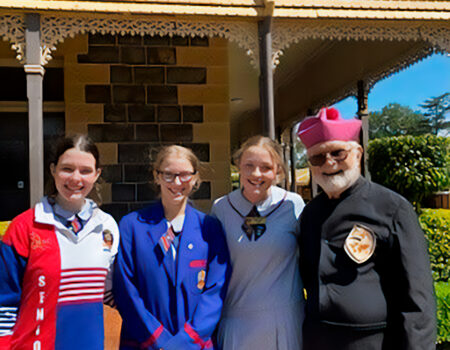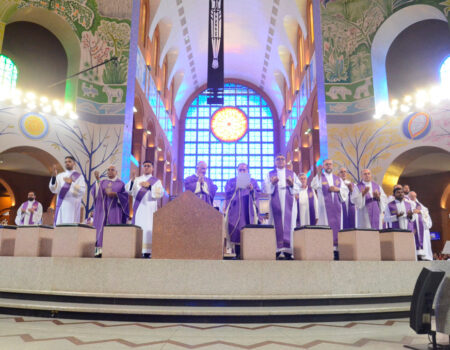Spirituality of the Heart
Responsability and Vulnerability
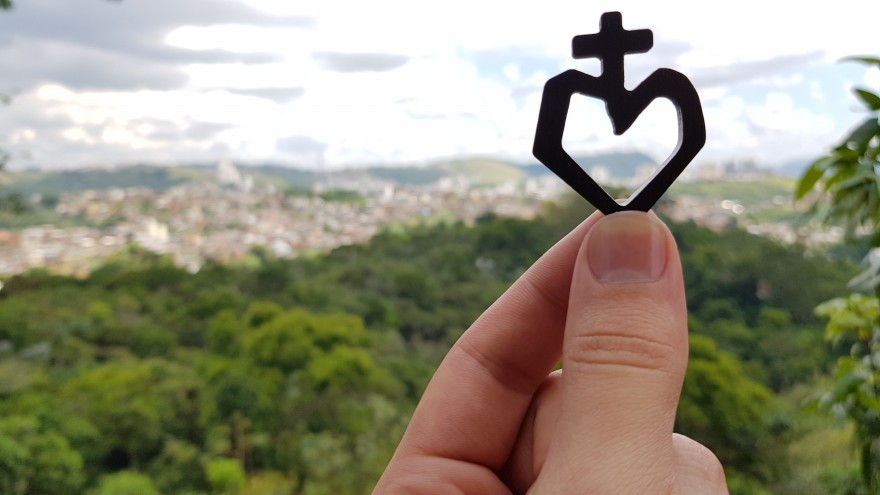
The following article is offered for your deeper reflection. Perhaps it might be used when you gather to reflect and share together with other confrères.
December is an important month as we celebrate that our life in Christ begins with the Incarnation. We rejoice at the birth of Jesus, who gives his life, and invites us to give ours as he did, without reserve. Like him may we be on earth the Heart of God. The blessings of the Christmas season to you all.
December also marks the beginning of our own history as Missionaries of the Sacred Heart. On December 8 we celebrate not only the foundation of our Congregation but also our mission, which has found expression in innumerable commitments carried out by individual MSC and communities, in almost all corners of the planet. Over the period of the last 167 years more than 7000 finally professed MSC have contributed to this missionary energy, a fact we can acknowledge with deep gratitude and joy.
The responsibility of continuing to add to this extensive missionary energy, is in the hands of every MSC alive today. While our missionary energy is often channelled into developing infrastructure and institutions, communities, and processes, what significantly remains in the memory of many people is not what we built but who we are as men whose hearts are formed in the heart of Christ.
Jules Chevalier saw that the ‘remedy’ to the mal modern was to be found in the heart of Jesus. In our era, as in his, egoism and religious indifference are present, and today particularly, there is an exaggerated deference to ego (often narcissistic) and a profound disconnection from the life of the soul which debilitates and deenergises our task of making meaning. It is not uncommon that people speak of spirituality from an individualistic point of view, missing the connection between spirituality and communion, and spirituality and justice. Our spirituality of the heart, embodied in who we are and how we act, is an especially pertinent remedy for the world today. It calls us into personal encounter with the heart of God, liberating us from self. It grants us the freedom to be vulnerable with one another, while empowering us to take up the responsibility of service of the common mission.
I read recently, an interesting paper, which discusses pedagogies of responsibility and vulnerability, rooted in the Catholic tradition, as a possible way to form a more resilient faith commitment. In his article, Teaching the Unteachable or Why Too Much Good Is Bad. Religious Education in Catholic Schools Today, Didier Pollefeyt (Faculty of Theology and Religious Studies, Katholieke Universiteit Leuven, Belgium) reflects on the strong disaffiliation from Church and faith that takes place when students leave the Catholic education system. Based on empirical data, he formulates a hypothesis that Catholic schools use a pedagogy that is too much concerned with positive theology and a positive psychology, an approach that does not stand the test when life shows its complexities and vulnerabilities. If you want to read this article you can find it at https://www.mdpi.com/2077-1444/12/10/810/htm. Pollefeyt’s analysis of the data is, I think, relevant for us and the application of Spirituality of the Heart today.
It is only natural that Spirituality of the Heart emphasises a positive theology and a positive psychology. It’s what makes it so attractive. We preach a God of love, in whom our desires and needs are fulfilled and sustained. Our spirituality speaks deeply to the yearnings of a people who long to encounter the compassion and kindness, tenderness and gentleness of a God who deeply cares for them. We celebrate with great joy and gratitude this fact that God loves us. We would never want to diminish or judge the value of this. But what Pollefeyt points out is that a positive approach is incomplete, if it doesn’t offer a pathway for people as they also experience the great ‘negative’ experience of life; emotional turbulence, periods of spiritual darkness and dryness, years of considerable relationship challenge, disruptive change, or trauma for example. Pollefeyt’s research suggests that the emphasis on positive theologies and psychologies, restricts the development of capacity for both responsibility and vulnerability, and this in turn lessens the resilience of a person’s faith. When we speak of the loss of responsibility in this case, we include a lessening of the individual’s capacity to respond to the realities with which he or she lives, and this diminished capacity impacts maturity, integrity, equanimity and balance. Vulnerability, in this context refers to a person’s willingness to be open and available emotionally and spiritually for the other, rather than a destructive process. As Jesus was vulnerable to others in his love to them.
In April this year, between the towns of Cunén and Uspantan in Guatemala, as I stood at the place o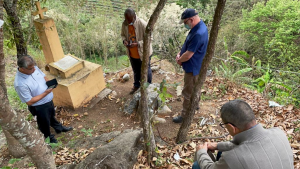 ur confrère Juan Alonso msc was assassinated by the military, I reflected on his words, “I have the presentiment that I am in danger. I do not want them to kill me, but neither am I willing to abandon these people out of fear. The phrase comes to my mind: “Who can separate us from the love of Christ?” (Rom 8, 35-37). What power gives a man the capacity to willingly accept such responsibility and vulnerability?
ur confrère Juan Alonso msc was assassinated by the military, I reflected on his words, “I have the presentiment that I am in danger. I do not want them to kill me, but neither am I willing to abandon these people out of fear. The phrase comes to my mind: “Who can separate us from the love of Christ?” (Rom 8, 35-37). What power gives a man the capacity to willingly accept such responsibility and vulnerability?
I think it is easy to say, “well, God gives us the strength”, as if it suddenly descends from heaven on demand. Rather, my sense is that it grows in us as a result of love. Being in love with and being loved by. It is love, and remember God is love, that builds up in us the resilience of faith. Perhaps Pollefeyt’s research challenges our formation systems (initial and ongoing) to ensure we resource aspiring and professed members, by building and strengthening resilience, responsibility, and capacity for vulnerability, through close accompaniment through life experiences of darkness, doubt, and absence of God, especially in the face of the limitations and brokenness of their own humanity.
In the paper, “Spirituality of the Heart: A Process Oriented Approach”, written in preparation for the 2019 General Conference in Korea, Spirituality of the Heart is described as a pilgrimage into willing vulnerability. (https://ongoing-formation.msc-chevalier.org/spirituality-of-the-heart-a-process-approach/ ) The movements of our Spirituality take us from a superficial level of Encounter (downloading), spaces that are more positive, into the vulnerability of intimacy through loving perseverance in the Heart of Jesus and with the heart of other (empathy). Empathy leads us into kenosis, spaces that are more negative (in terms of absence rather than bad). A letting go happens with us and we willingly become vulnerable, as Jesus was willing and able to respond from his vulnerability. This third movement of the heart, called conversion, enables us to be generative. Our accompaniment of others in this journey implies that we ourselves know and can be with our own darkness and kenosis, and not be in a rush to find more positive feeling spaces. Avoidance of the unpleasant, using positive theologies and psychologies can deaden one’s response-ability and resilience. In a second paper written for the 2021 General Conference, entitled “Change: What to do?”, (https://ongoing-formation.msc-chevalier.org/change-what-to-do/ ) it is clear that this avoidance results in an unfortunate communal co-dependency, that demands responsibility and vulnerability of leaders, but excuses and justifies members, preventing necessary change and growth in our missionary vision and energy. The Holy Father’s call for us to be a synodal people, is a remedy to that co-dependency. Each one called to take up their own responsibility for the life of faith in the church.
The approaching Christmas with all its beauty, consoling images of baby Jesus, peace on earth, and angelic choirs, would be an incomplete story if it were not inextricably linked to the Passion. So too our Spirituality is more than a positive message of the abundant riches of the Heart of Jesus. It is holistic calling us to deepen our sensitivity to both the presence of God AND the seeming absence of God in our lives and the lives of others. Both pathways are part of humanity’s pilgrimage with God. The Gospel imperative asks us to take up the responsibility of proclaiming the love of God by the witness of our own self-giving, in good times and challenging times. The birth of Jesus reminds us of the acute vulnerability that is the Incarnation, and that this is exactly where God is found – Emmanuel.
 Chris Chaplin, MSC
Chris Chaplin, MSC
General Assistant


